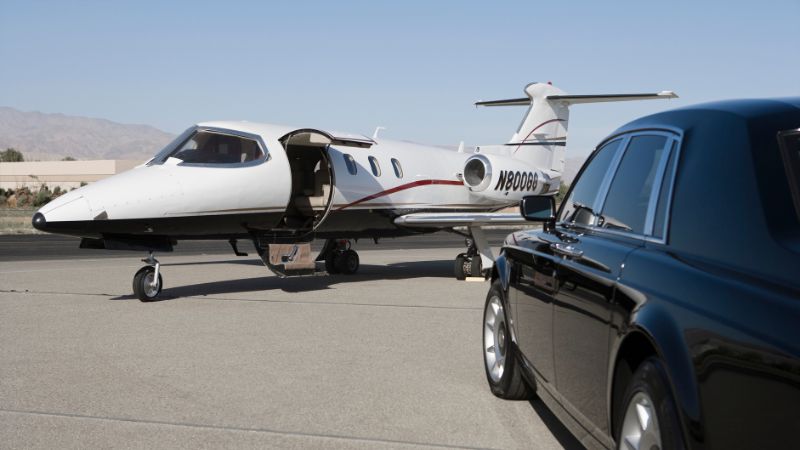Thinking of Buying a Private Aircraft? Explore These Six Tax Implications Before Making a Decision
Thinking of Buying a Private Aircraft? Explore These Six Tax Implications Before Making a Decision
Owning a private aircraft can provide many advantages for high-net-worth individuals, business owners, and entrepreneurs. However, it's important to understand the tax complexities and costs associated with aircraft ownership. This article explores some of the key tax implications of owning a private aircraft. Keep in mind that there are many nuances to these tax implications. This article provides a high-level overview of these issues; therefore, consultation with a tax professional to determine the potential impact in your personal situation is always advised.
Business Expense Deduction
Under current tax law, many of the costs associated with operating a private aircraft may be deductible as business expenses. However, it's important to understand what is considered an appropriate business deduction for tax purposes.
To determine deductibility, the IRS looks at whether the aircraft operating costs are "ordinary and necessary" to a trade or business. The expense should be routine, directly related to the business activity, and appropriate and helpful in developing the taxpayer's business.
Courts have established factors to determine if expenses are ordinary and necessary, including whether they are reasonable, common and accepted practice, and not lavish or extravagant.
For private aircraft, the owner must prove that air transportation is a business requirement, that private aircraft are necessary, and that the specific aircraft is appropriate for the company's use. Factors such as time savings, increased productivity, and personal safety/security concerns can help establish reasonableness.
The costs of private aviation may also be considered ordinary and necessary business expenses when business requires flights to inaccessible airports, out-of-the-way locations without commercial air service, or when the timing and duration of business flights are unpredictable.
Personal Use of Company Aircraft
While the cost of aircraft use is generally deductible for business purposes, the costs incurred for personal use may not be deductible. Personal use of company aircraft can be categorized as personal non-entertainment use and personal entertainment use.
Determining which category the personal use falls under depends on factors such as the time spent on business and personal activities, the presence of an agenda, and the presence of a spouse or guests. Personal non-entertainment flights include commuting, travel for medical treatment, and travel to funerals. Personal entertainment flights include trips to sporting events or parties at the taxpayer’s home.
Expenses related to personal non-entertainment flights may be fully deductible. However, this is complex and depends on several factors, including, but not limited to, ownership structure, an employee's status, and whether the trip is reported as compensation.
Aircraft owners must allocate expenses between business and personal use and further allocate personal expenses between personal entertainment and personal non-entertainment flights. Thorough record-keeping is essential to substantiate business and personal use.
Imputing Income
When an employee uses a company aircraft for personal, non-business use, the company must impute fringe benefit income to the employee for the value of the transportation. The value of the transportation can be determined using the charter rate method or the Standard Industry Fare Level (SIFL) method.
The imputed income must be reported on the employee's W-2 form or Form 1099, depending on their relationship with the company. The employee then reports the income on their personal tax return and pays income tax accordingly.
Depreciation
An immediate deduction under the bonus depreciation rules is available for a new or pre-owned private aircraft. The deduction is a function of the percentage of qualified business use in the year of acquisition and in subsequent years. Generally, to avoid future recapture of bonus depreciation claimed, qualified business use must remain above 50% during the aircraft’s depreciable life. There are special rules for computing qualified business use when the ownership structure includes certain leases or there are compensatory flights to 5% owners and related parties.
Note: the 100% bonus depreciation write-off of eligible property expired on December 31, 2022. Under current law, bonus depreciation will phase out to 80% in 2023, 60% in 2024, 40% in 2025, 20% in 2026, and to zero in 2027.
Sales and Use Taxes
Consideration should be given to taking delivery of the aircraft in tax-friendly jurisdictions to minimize sales taxes. Some states impose no sales taxes or provide exemptions for aircraft purchases. Fly-away exemptions may also allow for the avoidance of state sales tax by flying out of the state within a prescribed period.
Excise Taxes
The federal government imposes excise taxes on payments for air transportation and the purchase of aircraft fuel. Here again it’s important to utilize the appropriate ownership structure to avoid unintended consequences. For example, simply placing a plane in a separate legal entity could result in the imposition of excise tax.
Owning a private aircraft can provide numerous benefits, but it's important to consider the tax implications. This article provides a general overview of the key tax considerations involved in private aircraft ownership. However, it’s crucial to consult with qualified tax advisers and maintain meticulous records to substantiate business and personal use of the aircraft. It is also imperative to consult with qualified aviation counsel, as FAA rules are complex and can differ materially from the tax rules.
Copyright © 2023 BDO USA, P.C. All rights reserved. www.bdo.com

